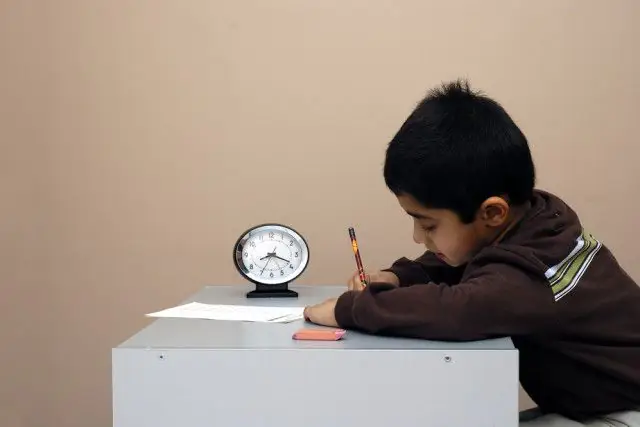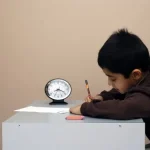A good education is an important part in helping children prepare for future and an important part of student’s academic life comprises of examinations. Research shows that some factors can impair learning, lead to poor performance and affect life tasks. Moreover, last minute preparations and re-reading notes and textbooks around exam time can strain your eyes very easily and lead to impaired sight causing all sorts of issues. Can Lead to Other Issues While studying for examinations, students tend to overstrain their eyes leading to sight problems, which experts believe that up to 25 percent of school children suffer from. Vision problems can cause these children to fall behind in their studies and may be the root cause of some behavioral problems. Reading ability and concentration may also be affected by vision problems. Many educators are finding that vision problems have a significant impact on the ability of the student to accomplish the academic tasks they are given. During Exam times often the student has to spend lot of their time in front of the computer, he or she may develop eye problems as a result of the constant fatigue. Good nutrition is also a factor in good vision. These factors can all contribute to a vision problem that prevents the child from doing well in his studies as well as daily tasks of life. Warning Signs of Problems Children may not be aware that their sight is causing them problems. They may simply not feel well, complain of headaches, feel dizzy or experience nausea. They may feel fatigue and rub their eyes constantly. Researchers at the University of California suggest that a child with Attention Deficit Hyperactivity Disorder, or ADHD, may actually have an undiagnosed problem with proper focusing. The signs that might be seen in a child with vision difficulties are squinting, closing or covering one eye, holding a book close to the face, excessive clumsiness, tilting the head to one side, frequent daydreaming, using a finger as a mark while reading, rubbing eyes repeatedly etc. Dealing with the Eyestrain It is very important to take care of your eyes during exams and take rest to relieve strain so that it may not become too big of a problem. Here are some quick tips you should follow during exams to avoid hurting eyes- 1) Follow the“20-20-20” rule: In this process, all you have to do is look at a distant object approx. 20 feet away for at least 20 seconds after every 20 minutes when you are doing a job that requires a lot of attention such as reading or using a computer. Looking far away helps in relaxing the focusing muscles and reduces eye fatigue. 2) Distance from Screen: If you work or study for long periods of time in front of a computer screen, then ensure that the monitor is not too close to your eyes. Maintain a reading distance of around an arm’s length from the monitor. 3) Blink Continuously: It is very important to blink regularly while reading or using the computer as it helps in preventing dryness and irritation. The coating of tears over the eyes evaporates more quickly if we don’t blink often and, therefore blinking is essential to keep eyes moist and lubricated. 4) Turn off any harsh lights, or fluorescent light bulbs. These can make your eyes work harder to adjust and long exposure to bright light will over stimulate your eyes causing strain. 5) Regular visits to the Optometrist can also help to detect problems that can be easily corrected with prescription. These measures can help to keep a child’s eyes healthy throughout his examination, academic years and later on.





